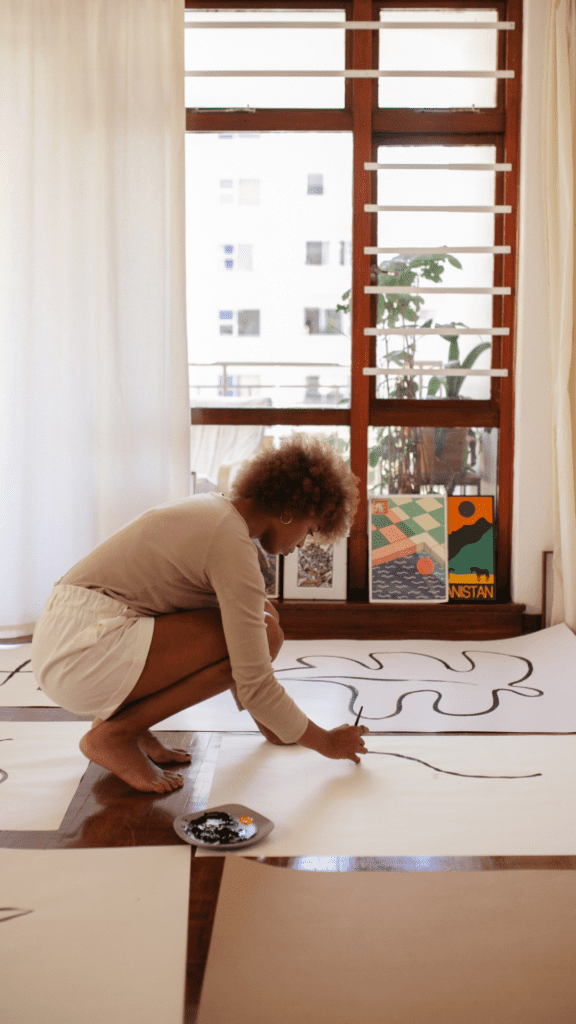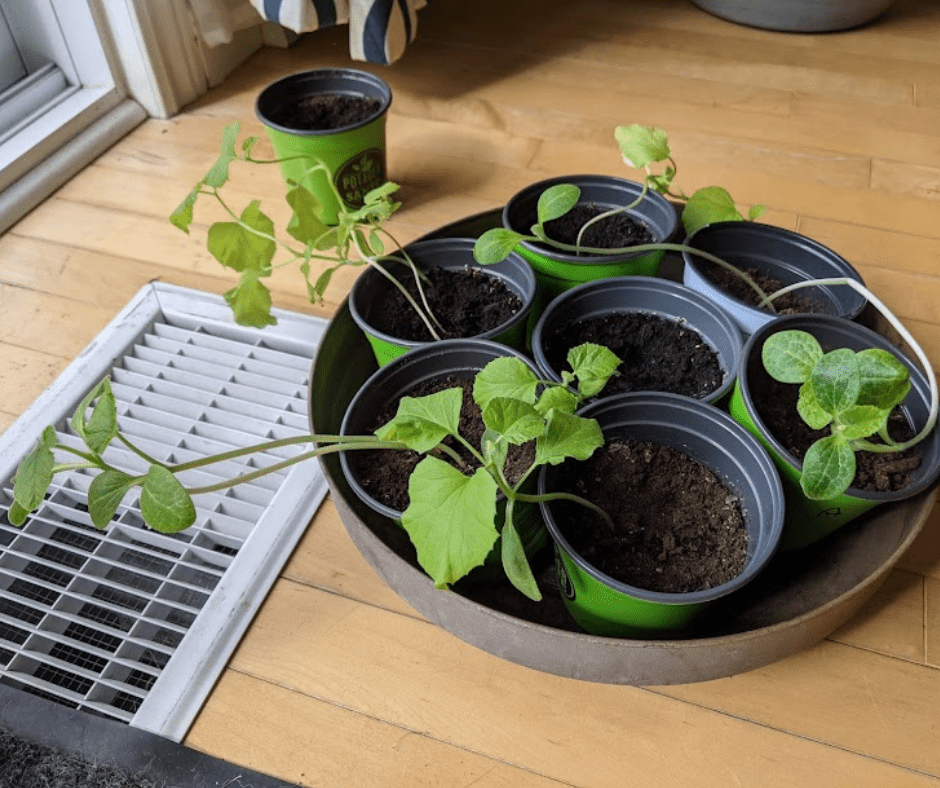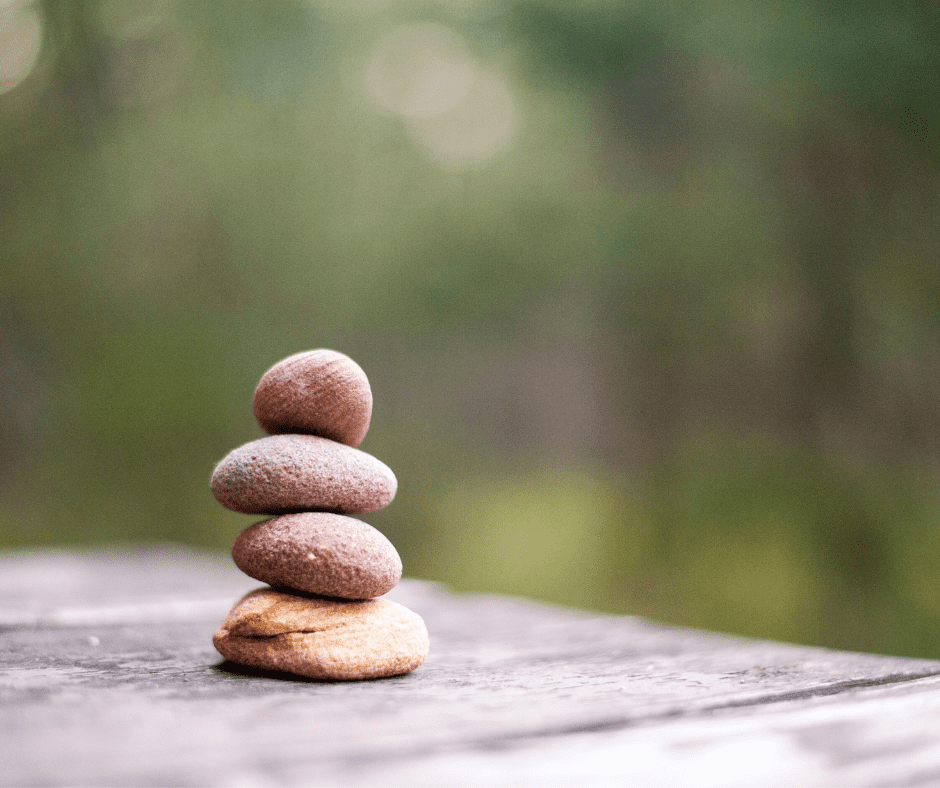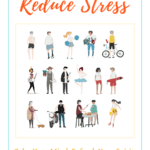Hobbies that reduce stress: Calm Your Mind, Refresh Your Spirit, and Have Fun Doing It!
De-stressing. We all need it. Many of us are not getting enough of it, myself included. Most of us also overcomplicate it. We think we need elaborate routines or expensive spas to find our zen. But maybe… We just need to take more time for our hobbies. The good news here is that you can save time by doubling up with hobbies that reduce stress!
Hobbies… Remember those?
That other thing we never seem to have time for!
And let me tell you, there are a LOT of options. So many that I'm not even going to try to list them.
Instead, here are 5 types of hobbies with serious mental health benefits.
- Get Creative: Hobbies that put you in flow
- Breathe: Pastimes that use purposeful breathing
- Get moving: whole body stress-busting
- Connect: De-stress with your fellow humans
- Go outside: Unwind in nature
1. Find your flow to hit reset
Why it works:
Flow brings you completely into the present moment, allowing you to let go of past and future. It’s hard to be stressed when there’s no past or future to fret over, and that’s good news for us! It also releases a symphony of stress-busting neurochemicals, including norepinephrine, dopamine, endorphins, anandamide, and serotonin. You feel amazing, ultra-focused, and your creativity dial is cranked up to high.
How you can use flow:
Flow and creativity are closely linked so any creative hobby that you enjoy is a great option. Writing, jigsaw puzzles, coding, art of all kinds, cooking, playing music, woodworking…anywhere YOU find that creative spark and sense of ease. If it pulls you in, it has flow potential. It’s ok not to feel ‘flow-y’ at first. Feel free to muck around as much as you need to get going. This is play-time after all, not a job!
Sports and physical activities are also great for finding flow. A cool bonus of the flow that comes with physical things is that you’re also training yourself to shift into focused flow despite mental pressures and distractions. Talk about a transferable skill.

Note:
A state of stress also increases focus. Be sure to choose activities that leave you feeling calmer, happier, and energized when you are done to get the stress reduction benefits.
2. Hobbies that help you to regulate your breathing
Why breathing works:
Breathing exercises are a well-known way to calm yourself and reduce stress. Taking full deep breaths, slows your heart rate and calms your nervous system.
Rhythmic breathing (a repeated breathing pattern) and circular breathing (balancing the inhale and exhale to avoid interruption) both encourage full use of the lungs and diaphragm with a relaxed state of control.

How you can use it:
Yoga and Qi Gong are probably top of mind, but they aren’t the only options! Rhythmic breathing patterns are ideal for running, swimming, and any other endurance sports. Circular and other controlled breathing methods are used for playing wind instruments and singing. The speed changes required for stop-and-go sports also taps into this as you have to learn to speed up and then slow your breathing back down again to conserve energy. If you already have hobbies like this, being a bit more intentional about how you are breathing can level you up in stress management as well!
Note:
Breathing rate and the length of the activity are key to stress-reduction vs a stress increase. If you like high intensity sports, use them in reasonable doses and alternate with low to moderate intensity activities throughout your week to ensure full mental and physical recovery.
3. Move to minimize stress and improve mood
Why movement works:
Physical activity releases endorphins that make you feel happier, more confident, and help you sleep better. All of these things are good for mental health and keeping stress low. Stress can also come with tension and a feeling of being “stuck.” Deliberate movement can help you get un-stuck by releasing that built-up tension through movement. Physical hobbies for the mind improve brain-body coordination as well, which can help you to be more in touch with how you feel. When you notice how you feel, you will be able to notice and manage your stress more proactively.
How to use it:
You don’t have to be an athlete to use movement effectively for stress reduction. A short walk or jog can do the trick.
Movement hobbies that also have an expressive element, such as dance, or theatre can be very effective for releasing stress-related emotions along with physical tension.

Note:
It’s not exactly a hobby, but you can use this technique in small doses throughout your day if you sit a lot. Getting up every 30-60 min to stretch, walk around, look out the window, etc can prevent stress and tension from building up in the first place.
4. Hobby groups create community health
Why community works:
Co-regulation baby! Briefly put, being seen, heard, and appreciated for your excellent taste in hobbies is good for your mental health. Chit-chat and laughter with your fellow humans is like balm for your stressed out soul.
You know the feeling when you realize you’ll get to hang out with enjoyable company and you get a little boost of happy anticipation? The de-stressing starts before you even leave the house or join the zoom call!

How to use it:
Sign up for a class, join a club or a team and make some connections! If you enjoy the activity and you can do it with other humans, it’s a win.
Pleasant casual acquaintances are all you need, although you may make solid friends in the long run as a perk. The more often you go to the event or group, the more you feel like you belong, and the more powerful the stress reduction effect becomes.
5. Nature plus your brain equals relaxation
Why nature works:
Just as the people we are around shift how we feel and act, so does our environment. Numerous studies have shown that exposure to nature reduces both chronic and acute stress.
Both green spaces (forests, parks, gardens, etc) and blue spaces (coasts, beaches, lakes, etc) are extremely effective. One Japanese study of 280 people showed that in 15-20 minutes, “forest environments could lower concentrations of cortisol, lower pulse rate, lower blood pressure, increase parasympathetic nerve activity, and lower sympathetic nerve activity compared with city settings.” Cities are busy, noisy, and full of overstimulation. Nature brings us back to equilibrium and instills a deep sense of contentment.
How to incorporate nature into hobbies that reduce stress:
Find any green or blue space near you and spend time in it. Remote natural landscapes are the most effective, so hobbies such as hiking, fishing, back country skiing, or nature photography can all take you there.
If the remote spaces are a little too far away, anywhere with plants and/or water will improve your mental well-being. Gardening, playing frisbee in a local park, bird-watching, and foraging all fit the bill for this level.

There’s even evidence that looking at photos and videos of nature will relieve stress, so it turns out watching the Planet Earth mini series on repeats is a valid hobby after all. Wherever you are and whatever your limitations, there’s something accessible to you in this category.
There’s even evidence that looking at photos and videos of nature will relieve stress
Optimizing your Hobby Happiness
You may already be realizing that a lot of hobbies for stress releif land in multiple categories. For example, if you’ve joined a salsa dance class you are using creative flow, breathing, movement, and community in one activity!
Take a second to think about all of the hobbies and activities that you enjoy, have previously enjoyed, or may want to try. Are you seeing which benefits they offer? Excellent.
I hope you're also seeing ways that you can level up the stress reduction of your current hobbies.
- Level up your model car-building hobby by joining a local or online club.
- Upgrade your hiking experience by inviting some friends.
- Improve any movement-based hobby by getting more intentional with your breathing.
Whether you're looking for new hobbies to reduce stress, or want more health benefits from the ones you have, there are a couple of tips to keep in mind:
One, do stuff you like
Obvious? Sure. But also, how often do we force ourselves into activities that aren't really our jam because we think we "should"? Hmm? Pick something you truly want to do to ensure you’ll keep doing it!
Two, consider what you need to foster balance in your life
If you already do several higher intensity physical activities or have a physical job, balancing that "go-go-go" with calming hobbies may offer more benefits.
On the other hand, if you're sitting in an office all day, doing something physical may be exactly what you need to move that stress out of your body and re-energize your spirit.
If you have a people-centric job, you may need solo time, or vice versa.
At the end of the day, any hobby can potentially reduce stress.
The key is to choose what's right for you and your life. What are you missing?
Happy hobby-hunting, Health Ninjas. I hope you have all sorts of ideas brewing for hobbies for relaxation that can reduce your stress and improve your life.
Now, get yourself outside to move, breathe and make stuff with people you like!

Health Ninja Jeanette Marcotte is a health coach and professional geologist, who is obsessed with helping fellow professional women reclaim their time and energy by weaving healthy choices into their daily lives.
When she is not coaching or looking at rocks, you can find her hanging out in her garden with her dog, collecting new hobbies, and/or reading far too many books at once.
Find other articles written by Jeanette on her coach profile. Hang around for mindset strategies and micro-habits that will transform your health & confidence so that you feel like a Health Ninja, too!







